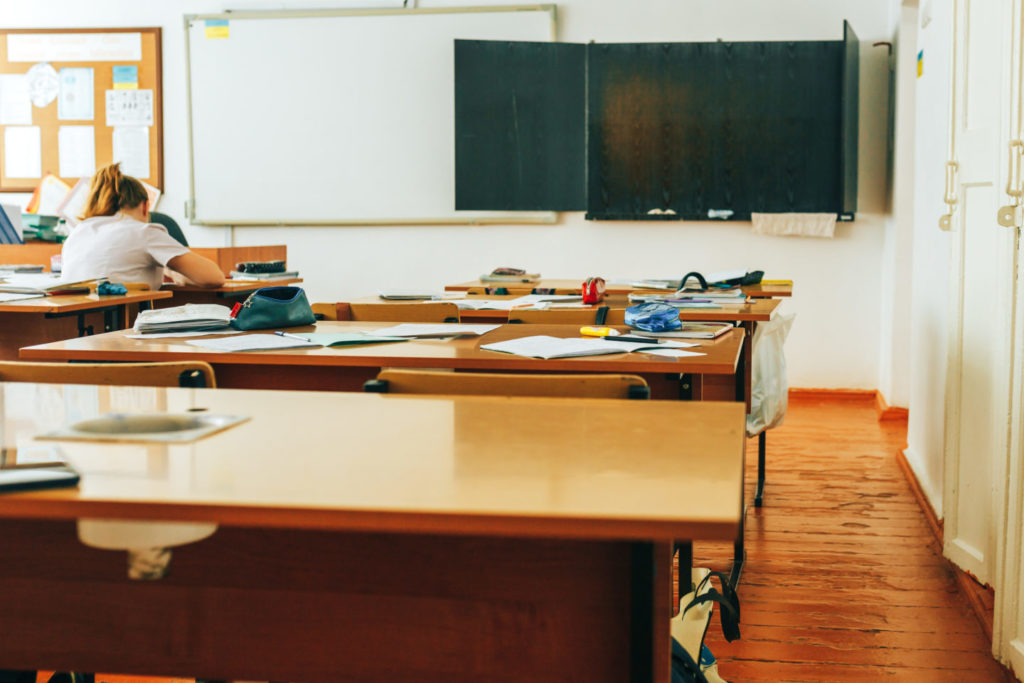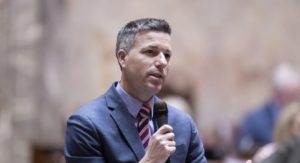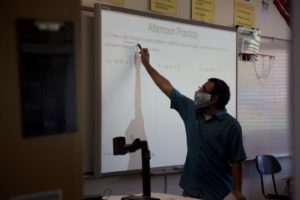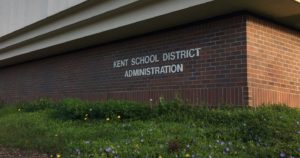Bill would cut WA classroom learning by four hours a week
(The Center Square) – A bill working its way through Washington state’s Legislature would redefine “instructional hours” to include time spent with non-teachers.
The legislation comes at a…

(The Center Square) – A bill working its way through Washington state’s Legislature would redefine “instructional hours” to include time spent with non-teachers.
The legislation comes at a time of concern over learning loss by Washington state students due to the closure of schools during the height of the COVID-19 pandemic.
Substitute Senate Bill 5054 would encourage school districts “to promote and facilitate effective and collaborative professional learning by establishing a school calendar that provides up to four hours each week for certificated instructional staff to engage in professional learning communities during the school day.”
Live Finne, director of the Center for Education at the free market Washington Policy Center think tank, is not a fan of the bill.
“The effect of the bill would be to cut instruction time for students by four hours a week, from 30 hours to 26 hours,” she wrote in a Wednesday blog.
Finne noted students attending private schools and charter public schools would continue to get their full allotment of instruction from credentialed teachers.
“The bill would hurt the education of Washington’s 1.1 million K-12 students by denying them access to quality education,” she said in the blog.
Finne thinks SSB 5054 would have another detrimental effect on students.
“In addition, the bill would set the precedent of filling classrooms with district staff who are not qualified to teach,” she explained. “The bill would result in lower academic standards, and would deny students the public education they have been promised, at a time when school funding and teacher pay are at record-high levels. Both trends would work to encourage more families to lose confidence in public education and to transfer their children to other schools.”
That’s on top of already alarming test results related to the pandemic that disrupted in-classroom learning.
National Assessment of Education Progress exams showed a nationwide decline in math and reading achievements between 2019 and 2022.
Washington fourth-graders saw a five-point decline in math, while eighth-graders saw a decline of 10 points. In reading, Washington fourth-graders saw a 3-point drop, and eighth-graders saw a 5-point drop.
The Center Square reached out to the state Office of the Superintendent of Public Instruction about the bill.
Katy Payne, OSPI’s executive director of communications, had good things to say about professional learning communities mentioned in the legislation.
“Teacher collaboration through structured professional learning communities (PLCs) are an evidence-informed strategy for improving student achievement,” she said in an email. “PLCs are a valuable way for educators to strengthen teaching and learning, share strategies and innovative practices, and problem-solve with other experts.”
She continued, “Many Washington educators use PLCs and other learning opportunities to meet student learning needs and express a need for more time for these activities, and this bill aims to close that gap. OSPI shares the value of building in time for teacher collaboration on a regular basis, and we appreciate the goals of this bill.”
Payne was less sanguine about the bill’s possible impact on teacher hours in the classroom should it become law.
“We also understand how the bill could have unintended consequences for students if the maximum number of instructional hours in the current draft are not effectively designed by a certificated teacher, and we will be working with the bill sponsors to address those,” Payne said.
Earlier this session, Senate Bill 5505 to expand the school year by five days was introduced but hasn’t made it past committee.
On Feb. 1, SSB 5054 received a do-pass recommendation from the Senate Early Learning & K-12 Education Committee and was sent to the Rules Committee.



